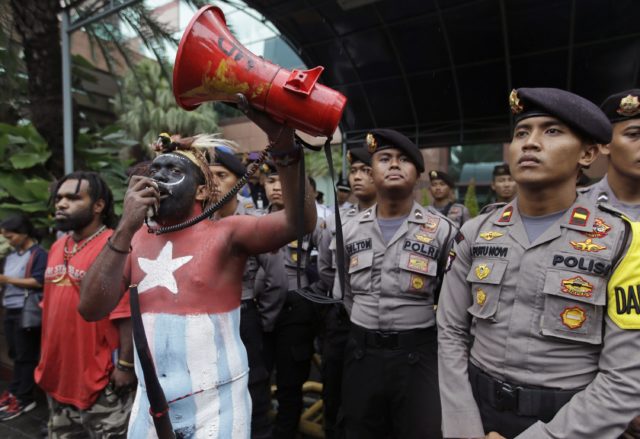
Briefs
Publication: Terrorism Monitor Volume: 19 Issue: 9
By:

One Year After the Death of Abdelmalek Droukdel AQIM Falls into Obscurity
Jacob Zenn
Al-Qaeda in the Islamic Maghreb (AQIM) has been considered a stalwart affiliate of al-Qaeda since its predecessor organization, the Salafist Group for Preaching Combat (GSPC), pledged loyalty to al-Qaeda in 2006 (Terrorism Monitor, April 5, 2007). The GSPC leader who pledged loyalty to al-Qaeda, and therefore AQIM’s first leader, was Abdelmalek Droukdel. He led AQIM until his death in a U.S.-supported French operation in northern Mali last year (France24, June 25, 2007). Contrary to reports of Droukdel being uninvolved in operations, videos leaked by either the French or Algerian intelligence services showed that he had been meeting with the Sahel’s top jihadists, Iyad ag Ghali and Hamadou Kufa, in the months before his death (europe1.fr, February 2). Indeed, it was because of informants within the Sahelian jihadist ranks that Droukdel’s location was identified and he was subsequently killed.
Months before Droukdel’s death, the top Sahel-based Algerian AQIM member and top Sahel-based Tunisian AQIM shura member, Jemal Oukacha (Abu Yahya al-Hamman) and Seifallah Ben Hassine (Abu Iyad al-Tunisi), were also killed in northern Mali by French forces. AQIM’s leadership in both Algeria and the Sahel have, therefore, been suffering. Nearly one year since Droukdel’s death, which took place on June 3, 2020, the results are in—AQIM has not rebounded with any force from the deaths of these leaders and the group itself is on the road to ineffectiveness.
AQIM has carried out virtually no attacks since Droukdel’s death and its latest statement in March was unimpressive (Twitter.com/Mossadnews, March 17). It contended that an AQIM member who was captured by Algerian security forces was interrogated under torture, urged Algerians not to join the security forces, and argued that Islamic law, and not protest movements or democracy, was the answer for Algerian Muslims. The statement nevertheless seemed to recognize that protests were Algerians’ preferred method for changing the political order, and not jihad.
A previous January AQIM statement also asserted AQIM had “paused” the jihad to allow the protest movements to take place, but would once again resume operations (Twitter.com/minalami, January 18). That statement was also the first from Abu Ubaida Yusuf al-Annabi, who replaced Droukdel as AQIM leader. A veteran AQIM commander, and former GSPC member, al-Annabi, however, still has little to show for supposedly resuming the jihad. In contrast, AQIM’s Sahelian partner, the Group for Support of Islam and Muslims (JNIM), which is led by Iyad ag Ghaly and his deputy, Kufa, remains highly active in the Sahel. Thus, AQIM’s apparent disappearance from the jihadist scene along with the demise of jihadism in Algeria has not translated into the same in the Sahel; rather, the Sahelian jihad is becoming even more violent and widespread than it ever was in Algeria.
***
Indonesia Cracks Down on Papuan Militants
Jacob Zenn
On April 29, Indonesia announced that it would classify as terrorists militants in its largest and easternmost province of Papua, formerly known as Irian Jaya, which borders Papua New Guinea (benarnews.org, April 29). The terrorism label was immediately met with backlash, however, from human right organizations concerned about the label justifying the use of harsher counter-terrorism measures by the Indonesian security forces (thestar.com, May 2). Nevertheless, there was virtually no chance that Indonesia would change its decision.
Only three days before the terrorism designation, and likely catalyzing it, Papuan militants ambushed and killed Indonesia’s highest ranking intelligence officer, whose remit covered Papua, Major General I Gusti Putu Danny Karya Nugraha (aljazeera.com, April 26). Moreover, three weeks before then, on April 8, the militants attacked a school in Beoga, Papua and killed a student who they alleged was a spy for Indonesian security forces (antaranews.com, April 22). That attack represented the beginning of a series of targeted killing of school teachers and the burning of schools in and around Beoga and, according to a local priest, harassing women in the area (nusadaily.com, April 29). It was in the context of these school attacks that Nugraha considered the situation grave enough to visit Beoga, but he was killed, further indicating that the militants have an upper hand in the region (antaranews.com, April 27).
Despite these setbacks, Indonesia’s State Intelligence Agency (BIN) asserted its “morale” would not be undermined and that the country’s security forces would not retreat (tempo.com, April 27). In addition, immediately after Nugraha’s death, Papuan police announced that they killed nine militants in a counter-attack. However, the operation was not corroborated by outside media or other sources and it remains possible such claims were intended to boost morale after Nugraha’s death and were, therefore, exaggerated (channelsnewsasia.com, April 28).
Indonesia matched its words with actions by deploying an additional 450 soldiers to Papua during the peak of the militants’ attacks on schools in Beoga last month (benarnews.org, April 16). Typical of counter-insurgency operations elsewhere in the world, Indonesia is also attempting to win the support of local village leaders. On May 1, for example, the leader of the Ilaga community publicly announced that Papuan independence was no longer necessary because Papuans had all the same rights as every Indonesian (antaranews.com, May 1). At the same time, civic leaders suspect the increase in counter-insurgency operations will lead to economic stagnation in areas where the militants operate in Papua, which may counter-productively boost recruitment to the militants’ ranks. Such operations could also lead to civilians joining the militants if they witness or experience the types of abuses by security forces that human rights organizations have reported (ucanews.com, April 30).
While Papuan independence remains a minority demand among Indonesia’s Papuan population, there is also a Papuan activist movement that has been demanding greater rights and an end to anti-Papuan discrimination. Their protests throughout Indonesia—especially at universities—have often been met with force from police (thejakarapost.com, June 17, 2020). This may prove counter-productive because if peaceful protests are not tolerated, then Papuans may become more militant.




